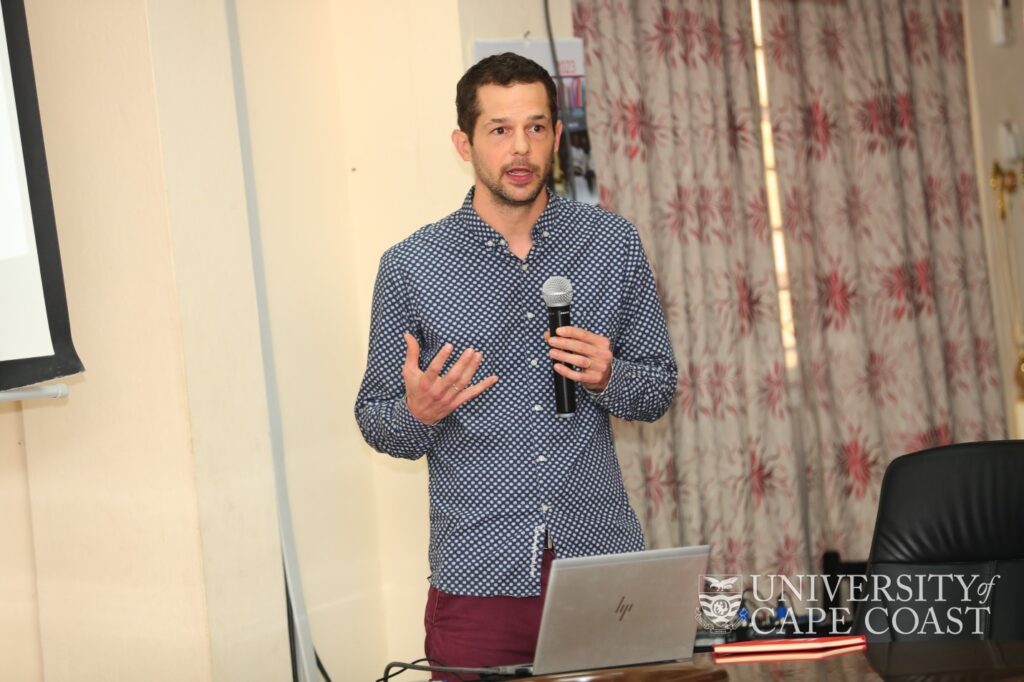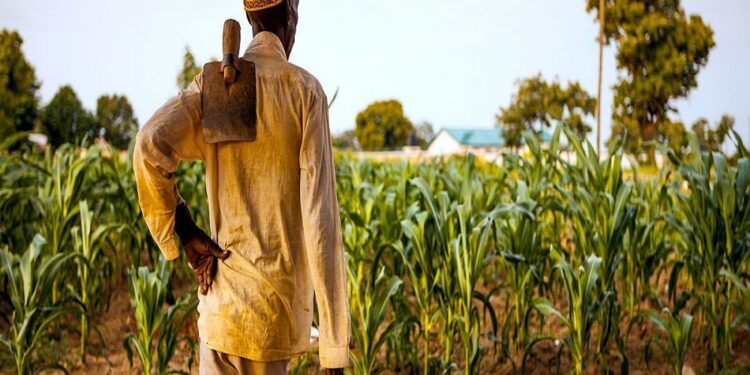An Associate Professor of Environmental Science at the Department of Urban Studies, Malmo University, Sweden, Prof. Chad Boda, has underscored the need for farmers to take active role in social change.
According to him, smallholder farmers, who are the main actors in maintaining food security in the country, should prioritize advocacy to remain relevant and competitive in the sustainable development agenda of every country.
Prof. Boda gave the advice at a public lecture on the topic: “Comparing Perspectives on the role of Smallholder Farmers in Sustainable Development.”
The lecture formed part of the Mobilizing Farmer Organisation for Sustainable Agriculture in Sub-Saharan Africa (FOMPO) Project, which sought to explore the emergence and outcome of farmer mobilization for sustainable and small holder-centered agriculture development in Sub-Saharan Africa.
It brought together participants from Uganda, Zimbabwe, Sweden, and Ghana.
Prof. Boda, who conducted his research in Uganda and shared his findings with participants, added that agriculture had enormous potential for every country; however, its modernisation required programmes that would provide support to smallholder farmers in rural communities responsible for the food security needs of African countries.

In Uganda, he noted that small-scale farmers produced about 90 per cent of the staple food citizens consumed. This implied that they were the main actors in maintaining food security in the country.
Prof. Boda also said smallholder farmers could be competitive at any level provided the necessary measures including political freedom, social opportunities, protective security amongst others were put in place.
Making her presentation on the topic: “From Policy to Politics in Sustainable Agriculture Development: The case of Rising Pesticides use in Smallholder Contexts”, a researcher at Lund University Centre for Sustainable Studies, Dr. Ellinor Isgren, called for the support of stakeholders in the agriculture value chain to educate farmers on the dangers of using illegal and fake pesticides.

She opined that the use of unapproved pesticides did not only pose health dangers to humanity but also environmental challenges that have dire consequences for the entire world.
Prof. Isgren, who is also a lecturer in Human Ecology at the University of Gothenburg, Sweden, told smallholder farmers to adopt modern technology to increase food production and boost soil nutrients.
She called on African leaders to set clear-cut laws and regulations guiding the sales and use of agrochemicals and the need for the farmers and dealers to abide by them.
According to her, such regulations were to ensure the chemicals did not find their ways into wrong hands and also protect the environment such that unapproved chemicals also did not find their ways onto the market.
She said the use of unapproved pesticides portend dangers for the environment and human safety as well and advised farmers against patronising non-approved agrochemicals.
The immediate past Director of the Directorate of Research, Innovation and Consultancy (DRIC-UCC), Prof. Frederick Ato Armah, chairing the event, said participants had a major role to play in their respective countries in ensuring food security.
He urged small-scale farmers to embrace the best agronomic practices taught by agricultural officers to improve their yields and enjoy the fruits of their labour.
Read more news here
Source: Documentation and Information Section-UCC


























